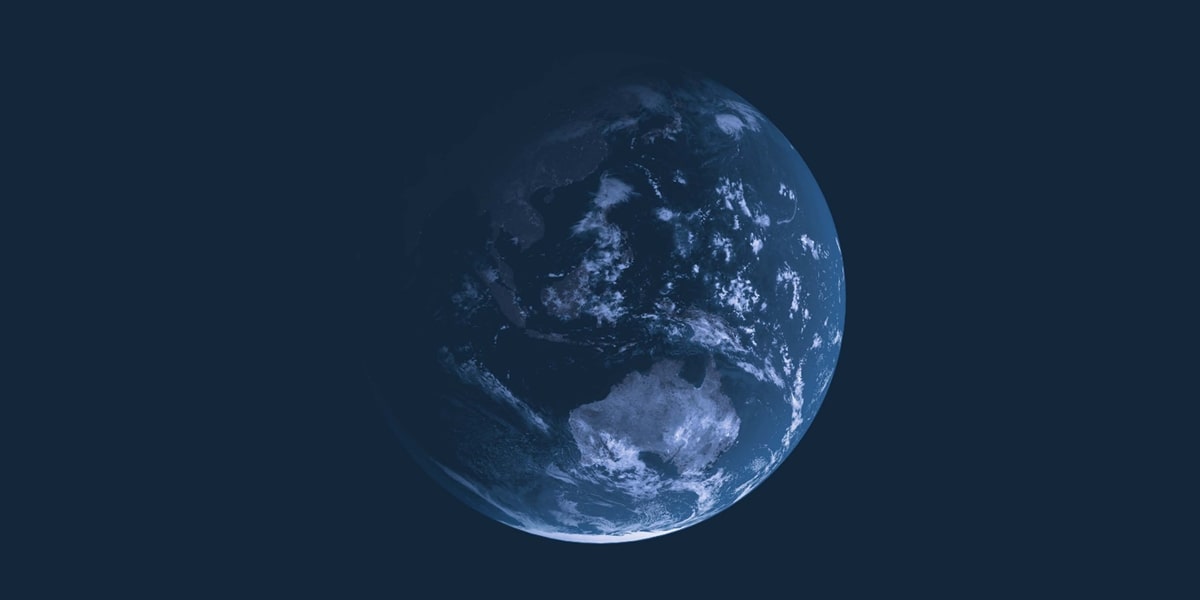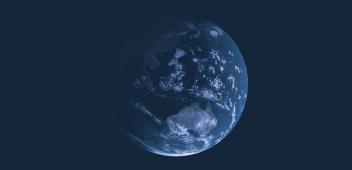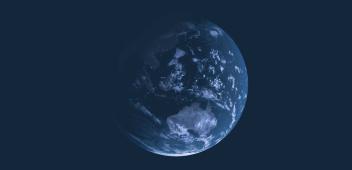China-Australia thaw reveals limits of Beijing's economic coercion
Originally published in Nikkei Asia, 25 October 2023.

Australian Prime Minister Anthony Albanese will travel to Beijing on November 4, a trip that in any ordinary year would attract little notice outside of the two countries.
But these are no ordinary times, and Albanese's visit will be on the radar of many capitals, not least Washington and Tokyo, which track intently the interactions of their allies and partners with Beijing.
No Australian prime minister has visited China since 2016. The hiatus was caused as much by the near collapse of a once professional and friendly bilateral relationship as it was by COVID-19 lockdowns.
Both countries have been engaged in an elaborate diplomatic table setting ahead of the Albanese visit, to ensure its success. Earlier this month, Beijing released Chinese-Australian journalist Cheng Lei, who had been jailed for nearly three years on vague national security charges.
Australia, for its part, last week cleared the Chinese lease of a port in Darwin, northern Australia, of security risks. Albanese also recently announced the sides have reached an agreement that could lead to the resumption of Australian wine exports to China.
The rupture in and subsequent stabilization of bilateral ties with China has provided the world with a real-time experiment in what happens when an emerging superpower like Beijing decides to teach a U.S.-aligned middle power in the Asia-Pacific a lesson.
Australia does not always command the diplomatic attention that its leaders would like. "When I am shaving in the morning, I am not thinking about Australian foreign policy," Henry Kissinger famously quipped in the early 1990s.
In part, this is a byproduct of geographical isolation. Australia is not en route to anywhere aside from New Zealand and Antarctica.
But it is also because Australia has traditionally been a low-maintenance ally of the U.S. with mostly good relations with its neighbors. Canberra does not go out of its way to pick noisy fights.
That changed dramatically around 2016, when Beijing and Canberra began squabbling over a kaleidoscope of thorny issues -- Hong Kong, the South China Sea, hacking, allegations of spying and Chinese meddling in Australian politics.
Far from being a passive follower of the U.S., Canberra began setting the pace in standing up to China. In 2018, Australia became the first country to ban Huawei, the Chinese telecommunications company, from its 5G network. The U.S. followed suit in 2019.
After the government, led by then-Prime Minister Scott Morrison, called for an independent inquiry into the origins of COVID in early 2020, Beijing's threats against Australia, until then delivered largely in private, spilled into the open. Within weeks, China had blocked or placed tariffs on $20 billion worth of Australia's exports.
Beijing scarcely concealed that the punitive measures were aimed at punishing Australia. "We will not allow any country to reap benefits from doing business with China while groundlessly accusing and smearing China, and undermining its core interests based on ideology," said Zhao Lijian, then the Foreign Ministry spokesman.
It was not surprising that Beijing thought it could leverage trade to coerce Australia. At the time the measures were enacted, about 40% of Australian exports in value terms were sold to China.
Australia, however, stood its ground.
"We are an open-trading nation, mate, but I'm never going to trade our values in response to coercion, from wherever it comes," Morrison told a radio station in Sydney after the trade measures were enacted.
Throughout the bilateral dispute, China depicted Australia as a puppet of Washington. Zhao, of the Foreign Ministry, said in 2021, "When a certain country acts as a cat's paw for others, it is the people that pay for misguided government policies."
The ripple effect
Fast forward three years, and the fallout from a seemingly isolated political and trade spat has extended far beyond Australia and China, and in ways that few predicted at the time.
In 2021, in response to what he said was a dramatically deteriorating strategic outlook, Morrison unveiled a deal with the U.S. and U.K. to buy and develop nuclear-powered submarines, and share advanced military technology. The deal, known as AUKUS, has reverberated around the region.
The strengthening of defense ties with Washington, which includes an increase in the number of U.S. marines rotated in northern Australia, has run in parallel with Canberra enhancing security cooperation with Japan and India. While the U.S. does not formally base troops in Australia, marines have been rotated through northern Australia since 2011, expanding from an initial 200 to about 2,500 today.
In August, Japanese F-35 jets landed near Darwin, where Tokyo has stationed 55 service members, the first time Japan has had such a military presence in Australia since World War II. Washington, Tokyo and Canberra have announced joint patrols off the Philippines, which is locked in a territorial dispute with Beijing.
Australia once stood alone in banning Huawei, but many other countries have since instituted similar prohibitions to keep the Chinese tech giant out of its telecom networks.
Australia also set the pace in another area of deteriorating China ties: security. Three years ago, more than half of Australians considered China an economic partner while 41% saw a security threat, according to a poll by the Lowy Institute. Now, two-thirds are focused on Beijing as a regional security threat, the type of collapse in sentiment toward China that has been replicated in the U.S., Europe, Japan and South Korea.
In the oceans off eastern Australia, once muted competition for influence between Canberra and Beijing is now out in the open, and a fact of life for the 14 small island nations dotting the Pacific, as much as they are resisting taking a side.
"China has made its intentions clear [but] so too are the intentions of the new Australian government," Penny Wong, Australia's Foreign Minister, said after Beijing attempted, unsuccessfully, in 2022 to have 10 Pacific nations sign an economic and security pact.
The U.S., Japan, South Korea as well as the U.K. and European nations have all taken a heightened interest in Australia's feud with China, sending delegations on the lengthy trek Down Under to understand how the government has stood up to Beijing, and largely gotten away with it. Albanese is in Washington this week, with China high on the agenda for his talks with President Joe Biden.
There has been negative blowback as well. New Zealand, Australia's closest partner, has often shuddered at Canberra's noisy conflict with Beijing. Feeling vulnerable, New Zealand has largely steered clear of replicating Australia's stance.
Australia's relations with Southeast Asia have deteriorated too, partly through neglect from the Australian side in the Morrison era but also because many regional nations thought Canberra too confrontational in its dealing with Beijing.
Better together
With so much bad blood between Australia and China, how did Albanese secure an invitation to Beijing for an official visit?
The stabilization arc of Sino-Australian relations over the past year contains lessons for other countries trying to thread the needle with China in an era of superpower competition, especially in resisting pressure through Beijing's use of punitive trade measures.
Albanese, after his election in May 2022, made it clear he would eschew the outspoken style of his predecessor, Morrison. At the height of COVID, Morrison had suggested the World Health Organization should be able to send investigators akin to "weapons inspectors" into China to hunt down the origin of the virus.
Albanese, who started his political life on the socialist left of the Labor Party but has since moved closer to the center, has steered away from such public controversy. The change of tone allowed Beijing to begin to dismount from its policy of belligerence and punishment, especially as those policies had not worked in the first place.
As an editorial in the Australian National University's East Asia Forum noted: "In exchange for forfeiting its hard-won reputation as a reliable trading partner, all Beijing got in return was AUKUS and the hostility of the Australian public and political class."
Beijing's punitive trade measures wreaked havoc in some of Australia's targeted sectors, notably wine and lobster. Australia had been the biggest foreign player in the Chinese wine market, with annual sales of around $1 billion. They have since trickled to a few tens of millions of dollars. Nearly all of Australia's lobster exports formerly went to China.
Elsewhere, Australian producers sought alternative markets to make up for lost Chinese sales. China's share of Australian exports hit a high of 43% in May 2020 but fell to 28% by mid-2022. Countries like Japan and India took up much of the slack.
The damage to Australian trade would have been much larger had China been able to source core commodities like iron ore and liquefied natural gas from elsewhere. But, luckily for Australia, both sides were stuck with each other.
Australia could not find alternative markets to match China for iron ore, LNG and wool. Nor could China wean itself off a substantial reliance on Australia as a supplier.
Far from Australia being dependent on China, the two countries have proved, for the moment, to be interdependent in key sectors.
There is no denying that geopolitical disputes are spilling over into economic exchanges with increasing frequency, said James Laurenceson of the Australia-China Relations Institute, in Sydney. "But the informed question is around how significant these spillovers are, compared with the fundamental drivers of trade, which are economic, not political. Politicians and bureaucrats don't trade. Businesses and households do."
Lessons learned
The China-Australia spat was also an important reminder for any country that has been subject to punitive measures from Beijing. No matter how angry Beijing becomes, it will not self-harm in enacting sanctions.
Russia's invasion of Ukraine, somewhat perversely, helped Australia's cause. The war elevated the salience of commodity suppliers, and in some cases, pushed up prices. At such a moment, Beijing rationally needed to shore up ties with Australia.
Resource-rich Australia is also abundant in the minerals needed for the green economy. As Chinese output of batteries and electric vehicles has soared, so have sales of Australian lithium and lithium concentrate.
"If you believe that we are undergoing a green and digital transformation, guess who has the lion's share of the essential raw materials for this new economy?" Singaporean Foreign Minister Vivian Balakrishnan said in May. "That is one strength [of Australia]."
Lithium has surpassed LNG as Australia's second biggest export to China behind iron ore, with sales rocketing to $7.4 billion between January and June this year, according to David Uren in an article for the Australian Strategic Policy Institute. "Two years ago, first-half sales of lithium to China reached only [$300 million]," he wrote.
Australia supplies more than half of the world's lithium, and 96% of its exports of the mineral go to China, underlining the latter's overwhelming global dominance in batteries and electric vehicles.
Although lithium sales are providing a windfall for Australia at the moment, the booming trade also contains the seeds of future geopolitical tensions.
China's rivals, in Washington, Tokyo, Brussels and elsewhere are aghast at Beijing's lock on green industries and are rolling out policies to regain ground.
As a resource-rich U.S. ally, Canberra is at the heart of those efforts to ensure reliable and secure supplies of minerals for the new economy. This year, Australian Treasurer Jim Chalmers has blocked two investment proposals from Chinese-linked companies dealing with rare earths and lithium.
Canberra has been clear that it is not going to let China dominate investment in these industries in Australia. "We'll need to be more assertive about encouraging investment that clearly aligns with our national interest in the longer term," Chalmers said in a speech last November.
From icy to lukewarm
The stabilization of ties with Beijing under the Albanese government has kindled hopes that the relationship can find a new settling point not too distant from the kind that largely prevailed until about 2016, under which warm trade ties and a cool political relationship can somehow coexist.
"Albanese has not restored the golden era of Australia-China relations. That is neither possible nor the right ambition," said Neil Thomas, of the Asia Society Policy Institute Center for China Analysis in Washington. "He has simply brought some calm."
Another factor driving the quieter tone, and one which is rarely visible from overseas, is Australia's electoral politics. In a country in which elections are invariably close, that matters.
The professionals overseeing the machines of both major parties acknowledged after the 2022 national election that the Morrison government's often harsh rhetoric on China contributed to its defeat in a number of key seats.
Nine of the 10 seats with the largest numbers of Chinese-speaking voters turned in swings against Morrison's Liberal Party, above the averages in comparable areas, according to The Australian Financial Review.
Politicians of all parties have taken note, and the public is so far supportive of the positive turn in bilateral ties.
Besides changing the mood music, after all, Canberra has had to do little to improve ties with Beijing, something that hints at an underlying reality for smaller countries like Australia: that they are a price-taker when it comes to China.
Going by the commentary in Chinese state media, Beijing believes it has the upper hand. Improving bilateral ties "requires Australia to overcome internal and external pressures," the Global Times, a Chinese Communist Party tabloid, said in an editorial in September. "Frankly speaking, Australia has not done enough in this regard and some mistakes are continuing."
President Xi Jinping has a lot on his plate in the aftermath of his country's brutal COVID lockdowns, simultaneously trying to reboot a struggling domestic economy and clean up the diplomatic damage from Beijing's alignment with Russia in Ukraine.
But the stabilization of the Chinese economy in recent months, the successful hosting of the Belt and Road summit in Beijing this month and the U.S.'s struggles in the Middle East will put a renewed spring in Beijing's step.
Beijing sees Australia as firmly on Washington's side in the deepening cleavage between the rival superpowers. Albanese might have built a new foundation for Australia-China ties, but the U.S.-China split is a reminder that there is a ceiling as well.



